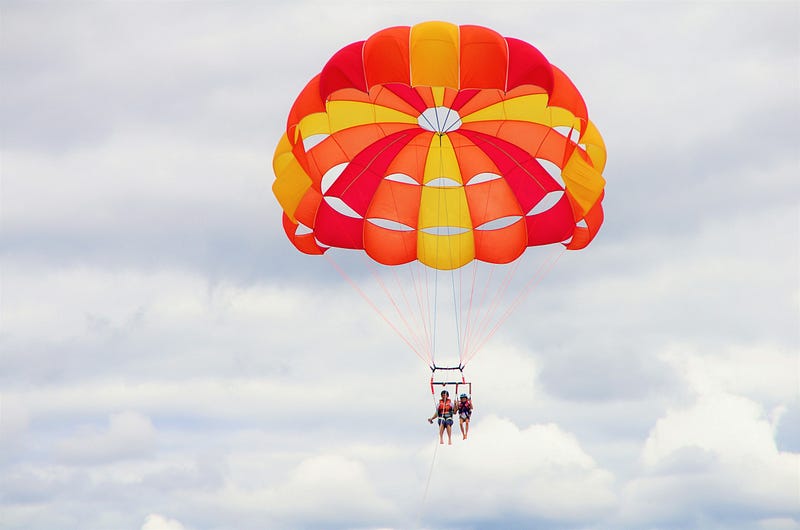# Addressing Parachute Science: A Call for Ethical Research Practices
Written on
Chapter 1: The Dark Side of Research
The remnants of colonialism still linger in modern research practices.

In the realm of science, it is crucial to attribute sources accurately. During my experience writing peer-reviewed articles, I learned that the prevailing guideline is clear: "Any factual assertion you haven’t verified yourself should be supported by a citation." However, a troubling trend called parachute science has emerged, wherein researchers travel to distant locations to collect data while excluding local scientists and communities from the process. This represents a new type of colonialism, where scientists from wealthier nations extract valuable resources, particularly data, from less affluent regions.
Parachute science—often referred to as helicopter research or neo-colonial research—poses an ongoing ethical dilemma. For instance, a 2020 study indicated that only around 30% of geological research about Africa involved an African author. Although this doesn't necessarily invalidate the findings, it raises ethical concerns about trusting outsiders with local health issues.
Imagine a researcher in a prosperous country, focusing on infectious diseases. Lacking an outbreak in their own nation, they secure funding to investigate a foreign disease, such as Ebola in Central Africa. Initially, this seems acceptable, especially when some funds are earmarked for fostering scientific growth in developing countries. However, problems arise when it comes time to publish the research.
Often, these projects are solely orchestrated by foreign researchers affiliated with international institutions, leaving local collaborators unacknowledged and without access to funds. Samples are frequently sent back to well-equipped labs in the researchers' home countries for analysis, sidelining local scientists entirely. This practice results in a backlash against both researchers and scientific initiatives, complicating future research endeavors.
Furthermore, the objective of open data in science—making raw datasets available to everyone—becomes compromised. While many publications now mandate that data be accessible, if it fails to acknowledge the local scientists who contributed, subsequent research might exclude them as well.
What Can Scientists Do to Combat Parachute Science?
Fortunately, there are practical measures that researchers can adopt to counteract parachute science. The simplest step involves giving proper credit to local researchers. For example, if I were studying Ebola, I would ensure my African collaborators are acknowledged as co-authors in any publications. Many scientific journals have started to revise their policies to encourage authors to recognize local collaborators and include them as co-authors.
Additionally, communities being studied—like the Cherokee Nation—have established institutional review boards (IRBs) to oversee research proposals that utilize local data. Researchers must seek IRB approval before collecting data, such as health records from the Cherokee.
Scientists are also often invited to peer review submitted articles in their field. When serving as a reviewer, I pay close attention to the authors' affiliations and call out any omissions of local scientists involved in the data collection.
Collaboration is Key
In many scientific disciplines, researchers must go where their subjects are located. For example, studying tropical reef corals necessitates traveling to natural habitats. However, science thrives on collaboration. A researcher can study the Great Barrier Reef while based in England, but partnering with local institutions for data collection is the best practice.
There are no limits on the number of authors a scientific paper can have, and including all collaborators only enhances the research. Moreover, funding can stretch further when local partners are involved. Although a lab in England might possess superior equipment, local labs can contribute significantly and may even provide fresher samples.
Parachute science has been a topic of discussion for over two decades. While some publications and organizations have taken steps to mitigate its impact, much work remains. If you belong to the scientific community, whether through research or peer review, pay attention to authorship in published papers.
The least we can do is ensure that proper credit is given.
Chapter 2: The Impact of Parachute Science
The first video titled "Fracking is Dangerous: The High Cost of Cheap Gas | ENDEVR Documentary" discusses the environmental and ethical implications of fracking practices. It highlights the potential dangers associated with extracting natural gas and calls for more responsible research and data collection methods.
The second video, "Professor Dave Humiliates Flat Earther David Weiss (DITRH Debunked Live)," showcases a live debate where scientific evidence is presented to counter flat Earth claims. This serves as a reminder of the importance of rigorous scientific methodology and the need for credible data sources in research.